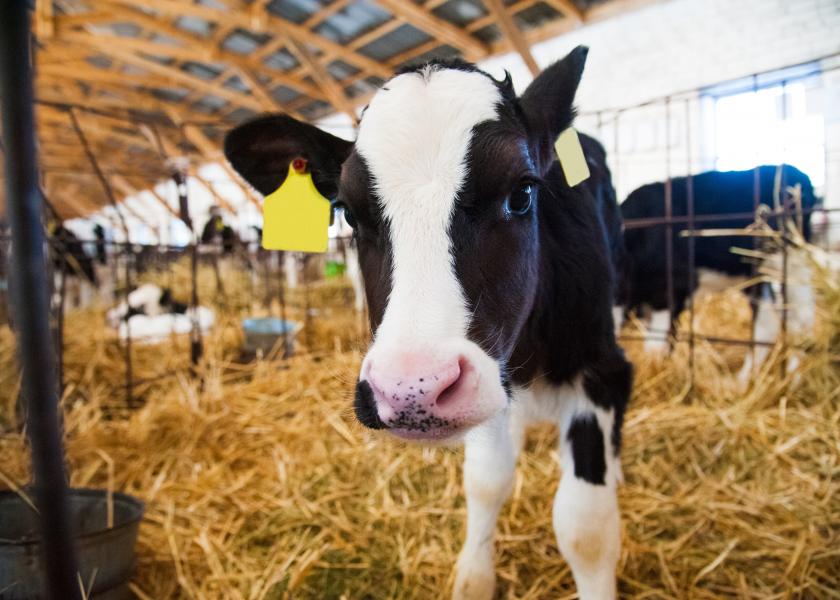Technology Can Help You Screen For Sick Calves

Automated calf feeders are already a staple of calf management at many dairies. Melissa Cantor, PhD, post-doctoral fellow in the Department of Population Medicine at the University of Guelph is researching the use of automated calf feeders and other precision technologies common on dairies to find calves destined for disease before they are clinically sick.
In the Nov. 30 episode of PDPW’s The Dairy Signal, Cantor highlighted the challenges dairy farmers face when raising their calves. She detailed how precision technology can be used to screen for sickness behavior in calves and how artificial intelligence identified sickness behavior in calves with very high accuracy up to 6 days before the calf was clinically sick.
In her presentation, Cantor noted most producers aren’t using calf feeders to their full potential. Information such as each calf’s milk intake, drinking speed and visits can be collected by automated milk feeders. The information captured includes data for unrewarded visits in which the calf visits the feeder and is not eligible to drink milk.
In a Journal of Dairy Science study, 120 calves housed in small groups were followed over 90 days. Indicators such as reduced feed intake and decreased activity in calves affected by bovine respiratory disease (BRD) were seen as soon as five days earlier than the actual diagnosis. Cantor noted such information could be translated into an alert so managers know the day the calf is getting sick, rather than waiting for visual cues.
Cantor’s findings also suggested that using relative changes in a calf’s unrewarded visits to the feeder compared to its own healthy baseline may be used to indicate sickness behavior associated with respiratory disease. She suggested researchers should develop precision tech alerts based on changes in an individual calf’s behavior. It is more reliable than comparing the average number of unrewarded visits to a feeder between a group of healthy and sick calves. Cantor also suggested that researchers should investigate if an alert can be developed to help producers make more judicious decisions about antibiotic treatments regarding respiratory disease.
“Can we give something to calves as they are starting to show (subclinical) signs of sickness before they are clinical to help them get past it?” she asked. “I think it is a major opportunity for research in this particular field.”
For more details on the studies and other findings shared by Cantor, watch or listen to the full episode of “Rising Stars – Graduate Research Showcase.” Other topics discussed include using precision tech to identify fever and if these were reliable, and ways to identify if a precision technology has been appropriately validated for use on a dairy.
All episodes of The Dairy Signal, including audio and video downloads are archived here. Watch The Dairy Signal at 12:00-1:00 P.M. CT each Tuesday, Wednesday and Thursday.
About PDPW
Professional Dairy Producers® (PDPW) is the nation's largest dairy producer-led organization of its kind, focusing on producer professionalism, stakeholder engagement and unified outreach to share ideas, solutions, resources and experiences that help dairy producers succeed.







